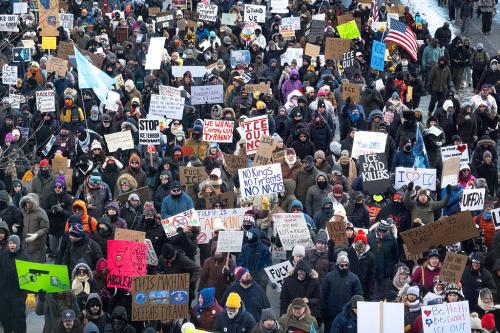

3:30 pm EDT - 5:00 pm EDT
Past Event
3:30 pm - 5:00 pm EDT
1775 Massachusetts Avenue N.W.
Washington, DC
20036
Over February and March, India has held assembly elections in five states with an electorate totaling over 150 million, including the largest: Goa, Manipur, Punjab, Uttar Pradesh, and Uttarakhand. These elections are taking place about halfway through Modi’s term as prime minister and following his government’s demonetization initiative, as well as the announcement of the annual budget. Observers are closely watching the state elections and their results, due on March 11, asking: Which issues and candidates are resonating with the electorate? What are the implications for Prime Minister Modi’s agenda? What might the results suggest in terms of the economic and political landscape leading up to the 2019 national elections?
On March 13, the India Project at Brookings hosted a discussion on the results of the state elections and their implications, what they might or might not indicate about national politics, and what lies ahead in terms of politics and policies over the next two years. Panelists included Sadanand Dhume (American Enterprise Institute), Irfan Nooruddin (Walsh School of Foreign Service at Georgetown), Adam Ziegfeld (George Washington University), and Alyssa Ayres (Council on Foreign Relations). Brookings Fellow Tanvi Madan, director of the India Project, moderated the discussion.
Panelist


Andre M. Perry
January 30, 2026

John C. Austin
January 22, 2026

Bruce Fuller
January 16, 2026